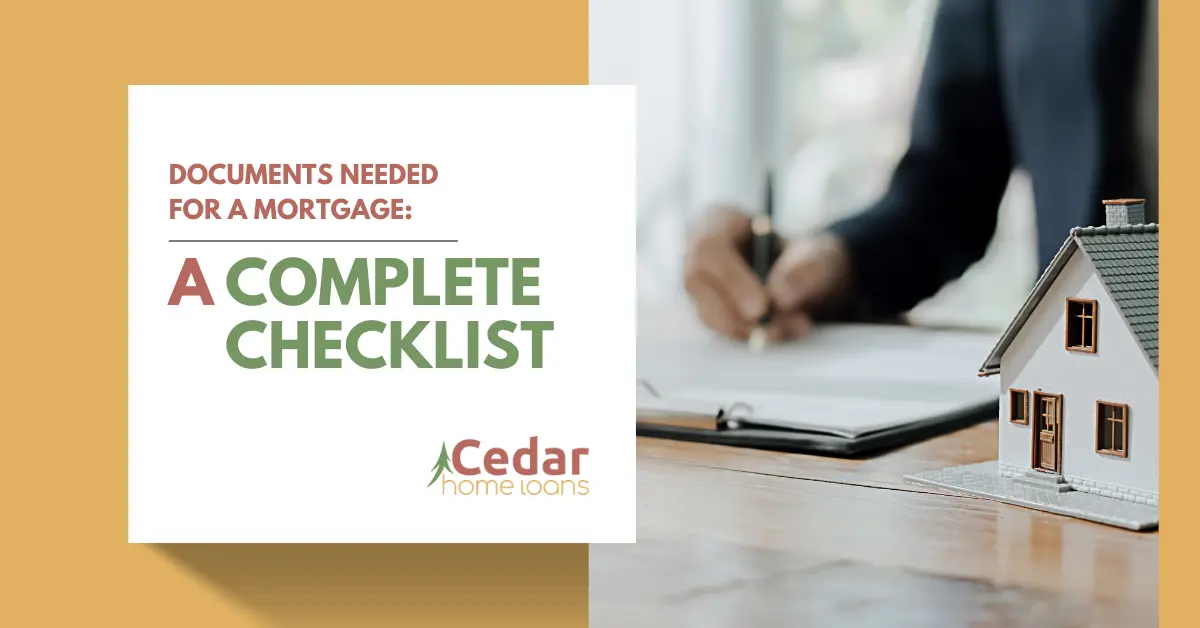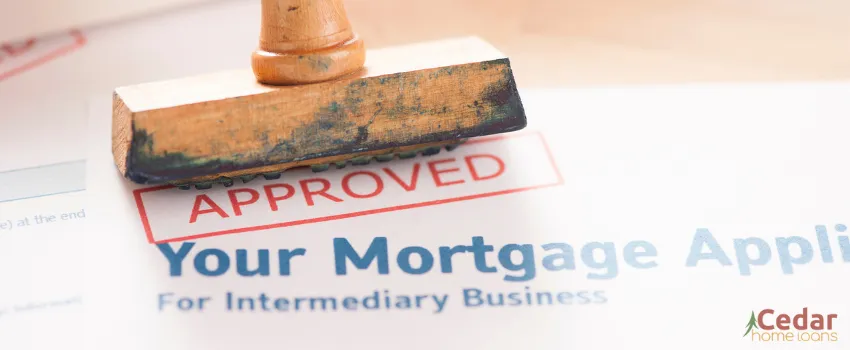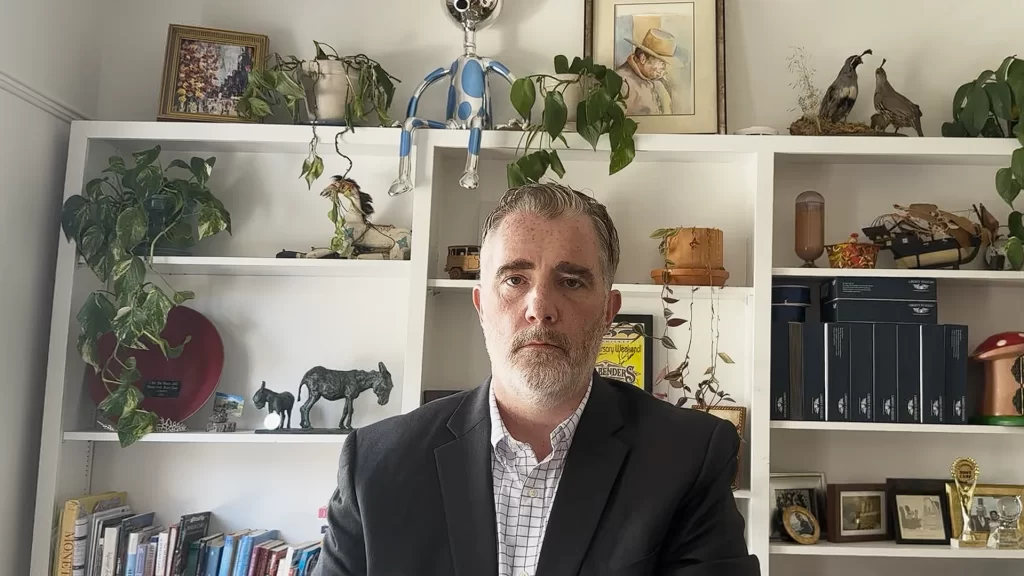When you apply for a mortgage, lenders will require you to submit various documents to verify your financial information and assess your creditworthiness. However, what documents are needed for a mortgage? Well, the documents needed for a mortgage can vary depending on the lender and the type of loan you’re applying for.
To help you navigate the paperwork, we’ve prepared a comprehensive checklist of the most common documents needed to apply for a mortgage. Having these documents ready will streamline the application process and increase your chances of getting approved for the loan.
What are the steps required to complete a mortgage?
Before discussing what documents are needed for a mortgage, let us first discuss the steps required to complete a mortgage. The process of completing a mortgage can be divided into several main stages, which include:
1. Mortgage pre-approval
The first step in the mortgage process is getting pre-approved for a loan. This involves gathering the financial documents needed for a mortgage and submitting them to a lender for review. The lender will then assess your financial situation and determine the maximum amount you can borrow.
2. Finding the right home
Once you have a pre-approval, you can search for the right home within your budget. This step involves working with a real estate agent, attending open houses, and evaluating different properties based on your needs and preferences.
3. Making an offer
When you find a home you want to buy, you’ll make an offer to the seller. This is a crucial step in the mortgage process as it involves negotiating the price and terms of the purchase.
4. Loan application
After accepting your offer, you must complete a formal loan application with your chosen lender. This involves providing personal and financial information and the necessary documents needed for a mortgage.
5. Home appraisal
Once your loan application is submitted, the lender will order a home appraisal to assess the property’s value. An appraiser will visit the property and evaluate its condition and comparable sales.
6. Loan processing
While the appraisal is being conducted, your loan will enter the processing phase. During this time, the lender will review your application and the supporting documents needed for a mortgage in detail. They may also request additional information or clarification, so staying in touch with your lender and promptly providing any requested documents is essential.
7. Underwriting
The next step is underwriting, where the lender evaluates your application, credit history, and the property’s value to determine if it meets their loan requirements. They will also assess your financial capacity to repay the mortgage. This process may take a few weeks, and there may be more documents needed when applying for a mortgage, depending on what is discussed with the lender.
8. Mortgage approval
If the underwriter is satisfied with all the information and documents provided, they will approve the mortgage. At this stage, you will receive a loan commitment letter, which outlines the terms and conditions of the approved loan. It’s essential to carefully review this letter and ask any questions you may have before proceeding.
9. Closing
The final step is the closing, where you’ll sign all the legal documents needed for a mortgage to complete the transaction. These documents will include the loan agreement, the deed of trust or mortgage, and other disclosures required by law. You’ll also need to pay closing costs and provide proof of homeowners insurance.
What documents are needed for a mortgage pre-approval?
A mortgage pre-approval is an initial step in the mortgage process, where a lender evaluates your financial information to determine the amount you can borrow. But exactly what documents are needed for a mortgage pre-approval? They are pretty similar to those required for a standard mortgage application. These include:
1. Personal identification
Like with a regular application, you’ll need to provide personal identification documents for a mortgage pre-approval. This can include a government-issued ID, driver’s license, or passport to verify your identity.
2. Proof of income
When learning what documents are needed for a mortgage pre-approval, one that stands out is proof of income, such as recent pay stubs, W-2 forms, or tax returns. The lender will use this information to assess your financial capabilities and determine the loan amount you can qualify for.
3. Employment and residence history
Documentation of your employment and residence history is also necessary for a mortgage pre-approval. This includes employment verification letters, recent utility bills, and rental payment records to establish your stability in both aspects.
4. Bank statements and financial records
During pre-approval, you must submit bank statements and financial records, including savings, checking, and investment account statements. These documents needed to apply for a mortgage are essential for lenders to evaluate your financial capability to afford the necessary down payment and closing expenses.
5. Credit history and credit report
As with a regular mortgage application, you’ll need to provide authorization for the lender to pull your credit report for a mortgage pre-approval. This is to evaluate your creditworthiness and determine the interest rate and terms you may qualify for.
6. Debt and expense information
When seeking a mortgage pre-approval, you should also provide information about your existing debts, including credit card balances, student loans, and car loans. This will allow the lender to calculate your debt-to-income ratio, which is crucial in determining your eligibility for a pre-approved mortgage.
What are the documents needed for a mortgage application?
During the application phase, there are several essential documents needed to apply for a mortgage. These documents include:
1. Loan application
The first of the documents needed when applying for a mortgage is the completed loan application form, which provides the lender with essential information about you, the property, and the loan you’re seeking.
2. Personal identification
Personal identification documents, such as a driver’s license, passport, or social security card, are also required for a mortgage application. These documents needed to apply for a mortgage help verify your identity.
3. Proof of residence
Proof of residence, such as utility bills or a lease agreement, may be required to establish your current address.
4. Purchase agreement (for homebuyers)
If you’re buying a home, you’ll need to provide a copy of the purchase agreement, as this document outlines the terms and conditions of the property sale.
5. Property information
A mortgage application also requires documentation related to the property you’re purchasing or refinancing. This can include the property address, legal description, and contact information for the seller or real estate agent.
6. Proof of insurance
Proof of insurance is required for an application, so you’ll need to secure a homeowner’s insurance policy and provide this as part of the list of documents needed when applying for a mortgage.
7. Proof of income
One of the most crucial documents needed for a mortgage is proof of income. Lenders will want to assess your ability to repay the loan, so they will ask for documents such as pay stubs, W-2 forms, and tax returns for the past two years. If you’re self-employed, you may need to provide additional documentation, such as profit and loss statements or 1099 forms.
8. Bank statements and financial records
Lenders will also require you to submit bank statements and financial records, including savings, checking, and investment account statements for the past few months. These documents needed to apply for a mortgage will help the lender evaluate your financial stability and determine if you have enough funds to cover the down payment and closing costs.
9. Credit history and credit report
Your credit history and credit report are essential documents needed for a mortgage application. Lenders will request your permission to obtain a copy of your credit report, which will be used to assess your creditworthiness.
10. Debt and expense information
When applying for a mortgage, you must also provide information about your debts, such as credit card balances, student loans, and car loans. Lenders will want to assess your debt-to-income ratio, so it’s crucial to be transparent and provide accurate information about your financial obligations.
11. Other financial documents
Depending on your financial situation, you may run into additional documents needed when applying for a mortgage, such as divorce decrees, child support agreements, or bankruptcy discharge papers.
Conclusion
Applying for a mortgage can be a complex process, but preparing all the necessary documents needed when applying for a mortgage can make it smoother and more efficient. The documents needed for a mortgage typically include proof of identification, income and employment, assets, and information on existing debts. You may also need to provide additional documents depending on your financial situation and the type of mortgage you’re seeking.
Get the best mortgage in Boulder from Cedar Home Loans!
Looking to buy a home in Boulder? Cedar Home Loans can help you secure the financing you need. With our seamless application process and competitive rates, we’ll make your dream of homeownership a reality. Contact us today, and let’s discuss your Boulder home loan options!





